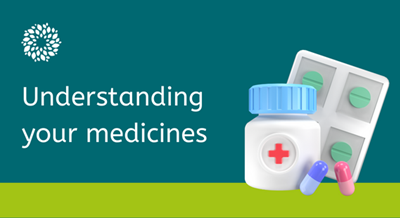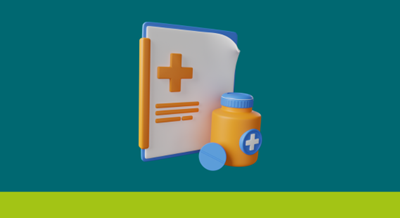
Wednesday, 20 March is the United Nations (UN) International Day of Happiness. It’s an opportunity to pause for a while, to reconsider our ‘pursuit of happiness’.
It’s not just a question for ourselves. This is a day to show each other what are we doing to build a happier, more mentally healthy nation.
Our use of antidepressants is being questioned. A recent RTÉ Investigates programme entitled Medication Nation put antidepressant prescribing in Ireland under the spotlight. The reporters found that "the the number of patients who were prescribed antidepressants through publicly funded drug schemes increased by 18% from 2012 to 2017… and that dosages being prescribed during the same period increased by 28% in per capita terms."
The headline message is that more of us are being prescribed antidepressants and that these prescriptions are for bigger volumes than ever before. The question is why is this so and what should we do about it?
The increase in these prescriptions has been correlated with an increase in anxiety symptoms over the same period. The implication is that, since we are more distressed, more antidepressants are being prescribed inappropriately for us. A closer look at the data suggests that other factors are also at play.
It is true that presentations of anxiety have risen. Post-traumatic anxiety and self-harm behaviours have trebled over a similar period [1]. However, the most consistent correlation with levels of antidepressant prescribing is revealed by the regional variations seen in prescription patterns. Antidepressant prescribing is greatest where psychological health services are least.
But there are also demographic explanations for the overall increase in the numbers of people being prescribed this type of medication. One demographic involves those over 50 years of age. Our nation has a growing and aging population. Research shows that our older people have significant health problems including anxiety and depression and these needs are not being met. The evidence suggest that three quarters of those above 50 years of age and in need of treatment for depression go untreated [2]. Untreated depression remains very common in Irish society.
Awareness of depression and anxiety disorders is increasing, and this is leading to increased demands for more effective treatments. These difficulties are the largest source of health problems in our society. Depression and anxiety often co-exist. One in five of us will have a depressive illness at some stage in our life. Three quarters of these adult mental health problems commence before the age of 25. More and more of us are aware that depression is a common problem requiring earlier intervention.
The clinical history of depression plays a role influencing the volume of prescribing. Although antidepressants work for some people, they are not universally effective. A little over a third of women and men respond to the first antidepressant prescribed [3] and so, for many people, a second or even a third drug may be necessary before an effective drug or combination of drugs can be found. Treatment combinations are most successful when medication is combined with modern psychological treatments. We call this therapeutic combination the 'care plan’.
A prolonged period of time spent seeking a therapeutic care plan (added to the delay in obtaining effective help in the first place) means that the journey to wellness for many people with clinical depression can be a long one. Even when recovery comes, it is often delayed.
The people who experience most distress in their journey to recovery are patients and their loved ones. Such is the distress of enduring prolonged or recurring depression that the fear of relapse becomes very real. In time, people discover that the best way to stay well is to continue to do the things that get you well. Consequently, the care plan may include taking prescribed antidepressants for a longer period of time.
The recovery rate is one problematic feature of clinical depression, but the high relapse rate is another. Nearly 40% of people relapse within the first twelve months after a depressive illness [4]. Although a second recovery is still very likely with appropriate care, people who experience a second relapse are more likely to relapse for a third time. The challenge for these people is not just getting well, but staying well. Inevitably, remaining on the antidepressant becomes a reasonable option for a significant but growing number of people who need to do whatever works to stay well. These people who take antidepressants and remain well on them are not 'drug users’. They are human beings with a right to live mentally healthy lives.
So, another set of questions must then arise for us. What should our attitude as a society be towards the prescribing of increasing numbers of antidepressants to increasing numbers of people? Should we look to improve the quality of life for all our citizens and so reduce the many sources of distress contributing to depression such as those that arise from poverty, violence and injustice. A better society is likely to be less depressed.
Should we work together to provide a better more effective mental health service, one with a more trusted capacity to provide therapeutic care plans, including psychological treatments, for everyone who needs them?
Should we continue to educate ourselves about the reality of clinical depression, a problem that is part of the human experience of suffering, a problem no different from heart disease or cancer?
Or should we at least stop shaming those who take antidepressants and who achieve a recovery on them, a recovery in which they can at last start to live and work and love again?
We have an opportunity to do all of these things in 21st century Ireland. We could make mental health recovery a reality for more people than ever before, because effective and sustained treatments do exist. We could and should make therapeutic care planning available to everyone. One way to do this would be to make treatment less stigmatic. The hopeful news is that we do not need to be a ‘medication nation’, but we could be a recovered one. And a recovering nation would be a much happier one!
References
[1]Professor Sir Simon Wessley, ‘Behind the headlines are some worrying trends…’ Huffington Post 04 10 2016
[2]Barrett A, Burke H, Cronin H, Hickey A, Kamiya Y, Kenny RA, Layte R, Maty S, McGee H, Morgan K, Mosca I, Normand C, O'Regan C, O' Sullivan V, Savva G, Sofroniou N, Timonen V, Whelan B. Fifty plus in Ireland 2011: First results from The Irish Longitudinal Study on Ageing (TILDA). Dublin: Trinity College Dublin, 2011.
[3]Taylor DM, Barnes TRE, Young AH, The Maudsley Prescribing Guidelines in Psychiatry, 13th Edition, 8 July 2018 Wiley-Blackwell
[4]Steinart C, Hofmann M, Leichsenring F (2014) Relapse rates after psychotherapy for depression - stable long-term effects? A meta-analysis. Journal of Affective Disorders Oct 2014 168: 107-118
The rise of our use of antidepressants
On Wednesday, 20th March, Prof Jim Lucey joined Sean O'Rourke on RTE Radio 1 Today with Sean O'Rourke to discuss the rise of our use of antidepressants. You can listen to the podcast now.
Author
Prof Jim Lucey
Professor Jim Lucey was Medical Director of St Patrick’s Mental Health Services (SPMHS) from 2008 to 2019, and a Consultant Psychiatrist with our team until 2023.
He is Clinical Professor of Psychiatry at Trinity College Dublin. He has been working for more than 30 years with patients experiencing mental health difficulties.
During his time with us in SPMHS, in addition to medical management, Professor Lucey specialised in the assessment, diagnosis and management of Obsessive Compulsive Disorder (OCD) and other anxiety disorders. He gave public lectures and was a regular broadcaster on mental health matters on RTÉ radio, featuring on Today with Sean O’Rourke for many years.



